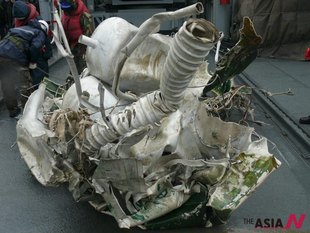Environment ministry’s extra budget to tackle major emitters of fine dust
The supplementary budget to be used by the Ministry of Environment this year in its fight against fine dust pollution will be equivalent to removing 3.7 million diesel cars from the roads for one year, officials said Wednesday. The government proposed a 6.7 trillion won (US$5.8 billion) extra budget on the day to cope with an economic slowdown and growing concerns about unemployment and ultrafine dust. Of the supplementary budget, about 1.5 trillion won will be earmarked to tackle the fine dust problem, ministry officials said, noting the ministry will be responsible for spending 1.06 trillion won of it.
The officials estimated the amount of fine dust reduced by this year’s extra budget spending would correspond to that emitted by 3.7 million diesel passenger cars in one year. “In the first three months of this year, the nation was hit by high concentrations of fine dust. Without radical efforts to reduce fine dust and protect public health, further damage and anxiety are expected,” a ministry official said, explaining the background for the decision to spend over 1 trillion won on a single environmental issue. The average concentration of harmful ultrafine particles, a class one carcinogen, in the air of Seoul last month reached the highest level since record-keeping began in 2015, triggering a wave of public fears about their effect on health.
The ministry’s fine dust-related extra budget of 1.06 trillion won breaks down into 701.6 billion won to deter major emitters of fine dust, 131.3 billion won to protect public health and strengthen scientific monitoring of fine dust and 231.5 billion won to increase the supply of low-emission vehicles and strengthen the competitiveness of atmospheric environment technology. In the industrial sector, the number of businesses eligible for a subsidy to install fine dust prevention facilities, now standing at about 180, will be increased 11-fold.
In transportation, the ministry will focus on the early retirement of dilapidated diesel vehicles and construction equipment and the distribution of emission reduction devices. In the domestic sector, household boilers used for longer than 15 years will be replaced and the supply of road sweeper trucks will be increased. The environment ministry will install automatic fine dust monitors at all 553 urban metro stations across the country, while increasing the number of air purifiers in subway cars and stations. It will also strengthen monitoring of fine dust particles blowing from foreign countries and hold negotiations with China based on objective data.
(Yonhap)





